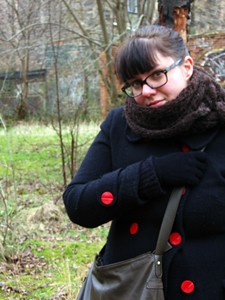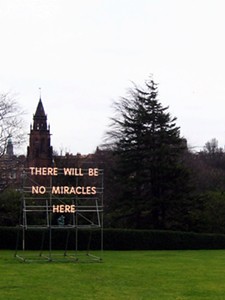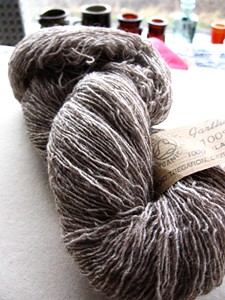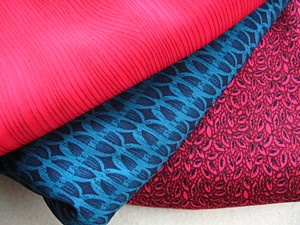February has been a good month so far. With several deadlines met, I now have a bit more time on my hands and this has resulted in a lot of crafting time which I have used well. Making: I have finished writing a brand-new shawl pattern which I hope you'll love as much as me! I have also finished knitting the sample shawl which has lived around my shoulders ever since. I'm yet to shoot the pattern photos as my model is currently overseas, but it won't be long until the pattern's released.
I have begun a lovely crocheted shrug in a new Rowan yarn, Creative Linen, in a gorgeous apple green. So far I am zipping through the shrug as the pattern's an easy two-row repeat. It'll be ace for wearing this summer. And I have a baby project lined up as my friend Katherine is expecting a boy very soon.
Mending: I finally took pity on my winter coat.
The coat is clearly on its last legs - in fact, it has been on its last legs the past three years - and I probably shouldn't even be seen wearing it in public. Unfortunately I have been unable to find its replacement (why is a classic pea-coat in warm navy or  black wool that hard to find?) and so I keep dragging it out of retirement.
black wool that hard to find?) and so I keep dragging it out of retirement.
Anyway, I sat down to repair the holes in it - I crocheted some small, decorative (and practical!) patches which I sewed on. Inspired by Kate I then replaced the dull black buttons with some lovely red vintage buttons. The coat is still on its last legs, but at least I don't feel totally embarrassed to be seen wearing it in public.
I have more mending to do: David's jumper has been worn non-stop for two years and the bottom rib is now in tatters and will need to be reknitted. Any tips on reinforcing ribbing?
Doing: I turned thirty-mumble-mumble yesterday and we went to Edinburgh for the day. We caught the FCB Cadell exhibition at the National Gallery of Modern Art before heading down to the refurbished National Portrait Gallery.
Cadell was one of the Scottish Colourists - a loosely bound group of painters working in the 1920s and 1930s. I'm easily excited by anything early 20th century (particularly 1914 to 1925-ish), so Cadell and his cohorts should be right up my street. The Colourists are a touch too post-impressionist for my taste, though, and although Cadell edged close to a sort of Matisse-esque Art Deco by the mid-20s, his work proved too polite and too safe for me. I left the exhibition feeling a bit grumpy because I have always admired Cadell's paintings in Glasgow's Kelvingrove Art Gallery and suddenly faced with a whole exhibition he felt wanting and limited. Maybe the curating was at fault - the transitions and contrasts in Cadell's style were never really explained and the obvious queer aspect to his art was not even mentioned.
The national Portrait Gallery has recently reopened and as a result the place was heaving.  We only had time to peruse a couple of the galleries - predictably enough I swooned over The Modern Scot (where I discovered William McCance - a painter and book designer clearly in artistic thrall to Wyndham Lewis) whilst David enthused over Romantic Scotland, a photography exhibition.
We only had time to peruse a couple of the galleries - predictably enough I swooned over The Modern Scot (where I discovered William McCance - a painter and book designer clearly in artistic thrall to Wyndham Lewis) whilst David enthused over Romantic Scotland, a photography exhibition.
I could write an entire blog post on the political implications felt throughout the Portrait Gallery - but I'm possibly too influenced by the novel I am currently reading - the very excellent And the Land Lay Still by James Robertson.
And so it goes.



 which is hopefully a step in the right direction? I am 150 pages into it and it reads like, well, a coiled-up snake waiting to strike (what an unsuccessful simile!). I have several books lined up:
which is hopefully a step in the right direction? I am 150 pages into it and it reads like, well, a coiled-up snake waiting to strike (what an unsuccessful simile!). I have several books lined up:  (in a beautiful edition given to me by D.),
(in a beautiful edition given to me by D.),  are the first three.
are the first three. . Hollinghurst is one of the finest writers of his generation, but TSC just did not deliver. It read like a reiteration of everything he has ever written filled with token, tired literary allusions. Emma Donoghue's 2010 short-listed
. Hollinghurst is one of the finest writers of his generation, but TSC just did not deliver. It read like a reiteration of everything he has ever written filled with token, tired literary allusions. Emma Donoghue's 2010 short-listed 
 was long-listed for the Man Booker prize this year. The first chapter was spectacular: a dystopian novel with a feminist bent. Oh yes! Unfortunately life is cruel and the rest of the book was a poorly-constructed and badly-written teen novel. I felt like giving up reading after Zadie Smith's
was long-listed for the Man Booker prize this year. The first chapter was spectacular: a dystopian novel with a feminist bent. Oh yes! Unfortunately life is cruel and the rest of the book was a poorly-constructed and badly-written teen novel. I felt like giving up reading after Zadie Smith's  . And don't get me started on Lev Grossman's
. And don't get me started on Lev Grossman's  . I really read far too many bad books this year.
. I really read far too many bad books this year. was uneven but well worth my time. While Atwood writing about other authors is not her at her most interesting, I really enjoyed the section dealing with her childhood and the general overview of genre. Jasper Fforde redeemed himself with both the delightfully metafictional and whimsical
was uneven but well worth my time. While Atwood writing about other authors is not her at her most interesting, I really enjoyed the section dealing with her childhood and the general overview of genre. Jasper Fforde redeemed himself with both the delightfully metafictional and whimsical  and the far more sinister
and the far more sinister  was a quirky, psychologically interesting read which reminded me of Murakami mixed with early Iain Banks.
was a quirky, psychologically interesting read which reminded me of Murakami mixed with early Iain Banks. was one of those re-reads. I love it with quiet intensity as only a lonely girl who grew up surrounded by books could love a book about lonely people surrounded by books who in turn love reading about lonely people surrounded by books. Another re-read was Charlotte Brontë's
was one of those re-reads. I love it with quiet intensity as only a lonely girl who grew up surrounded by books could love a book about lonely people surrounded by books who in turn love reading about lonely people surrounded by books. Another re-read was Charlotte Brontë's  . How interesting that in a year when mainstream literary fiction faltered so spectacularly a so-called genre novel took on all the hard questions and pulled it off flawlessly.
. How interesting that in a year when mainstream literary fiction faltered so spectacularly a so-called genre novel took on all the hard questions and pulled it off flawlessly. 


 that I will probably use the 'canon' as a source of inspiration (sans John Barth). I have never been able to pinpoint what type of books I enjoy but I might have a new vocabulary. We shall see.
that I will probably use the 'canon' as a source of inspiration (sans John Barth). I have never been able to pinpoint what type of books I enjoy but I might have a new vocabulary. We shall see.

 I have ever read). I have not read his book but I suspect it was the least objectionable and most save-our-face book on the shortlist. I look forward to the Man Booker 2012 long list already. To celebrate I have begun re-reading the 1990 Booker winner. It'll be my .. seventh? .. time reading AS Byatt's
I have ever read). I have not read his book but I suspect it was the least objectionable and most save-our-face book on the shortlist. I look forward to the Man Booker 2012 long list already. To celebrate I have begun re-reading the 1990 Booker winner. It'll be my .. seventh? .. time reading AS Byatt's  , Margaret Atwood's
, Margaret Atwood's  , AS Byatt's
, AS Byatt's  and
and  , David Mitchell's
, David Mitchell's  , and Tom McCarthy's
, and Tom McCarthy's  among others. But for every one of those books you also get Ian McEwan's
among others. But for every one of those books you also get Ian McEwan's  (which blooming won) and
(which blooming won) and  , Zadie Smith's
, Zadie Smith's  or
or  and Jane Roberts'
and Jane Roberts'